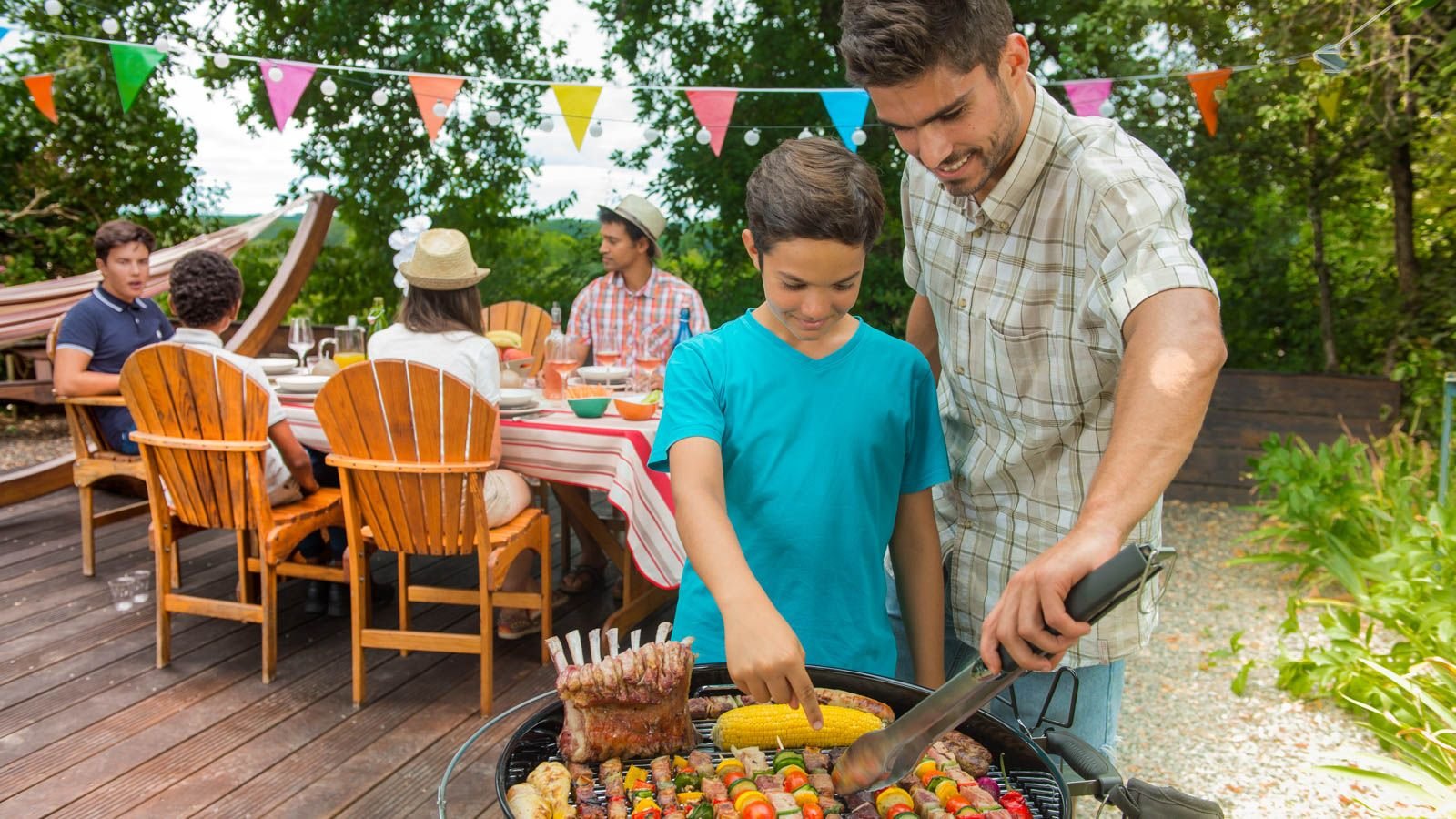
by Jan Roberts Parent Educator
With the hectic schedules of today's busy families and economic conditions demanding that parents work longer hours, family mealtime traditions of the past are in danger of becoming obsolete.
The present trend seems to be away from an organized family dinnertime, with fast food options making it easier for families to keep moving to after-school involvements into the early evening. This does not mean that family meals need to disappear altogether. However, it does mean that if sharing evening meals rates in importance to a family, mealtime should also be carefully scheduled along with music lessons and sporting events.
Family Meals Build Healthy Families
In the book, "Traits of a Healthy Family", author Dolores Curran reports that the families she surveyed rated family table time so highly that they placed it 13th on a list of 56 possible family-building traits. These families experienced enough positive results from sharing meals together that they made this a priority in daily life.
When a family gathers around the communal table, there is an unspoken sense of belonging to one another. Just the act of being together sends a powerful message of security to children, as they are reminded that these are the people who love and care about them. This is an opportunity for family members to listen to one another's "pits and peaks" of the day. Achievements can be celebrated, encouragement given, and the emotional wellbeing of family members detected.

Pass Values Along With Food
A family "on the run" may be missing other benefits provided at the kitchen table. Parents can pass on their beliefs and values to their children along with the food, as well as inform and educate about current events. This is the place and time for children to practice manners, as well as the give and take of communication skills.
Results of a recent study of high school students who attained the top SAT scores showed that a commonality in their upbringing had been enjoying family meals on a consistent basis. It was around the family table that they had gained confidence as communicators, learned knowledge and values from their parents, and felt the encouragement and support of their family. Participation in family meals fed their minds and spirits as well as their bodies. Little did they know that this family tradition would give them a boost in the college application process.
Family Meals Are Soul Building
It is definitely harder these days to make traditional family meals happen, but the benefits to children and parents alike seem to merit the extra effort and scheduling. It doesn't matter so much what a family eats; fast food will work in a pinch. It matters mostly that each family member is looking around a circle of faces thinking, "These are the people who love me and will be there to support me throughout my life." Now that's food for the soul!

Practical Parenting Pointers
- Plan ahead. Schedule a minimum of three family meals a week and say "NO" to conflicting involvements.
- Purchase a week's supply of groceries, including simple healthy options and crockpot meals that can be prepared in the morning.
- During meals, encourage family members to share "pits and peaks" from their day. Learn more about each other!
- Teach children the correct way to set the table. Gently remind them about manners, but don't ruin the fun by making this the main focus.
- Occasionally use the Red Plate ("You Are Special Today") to celebrate someone at the family meal - a birthday, a good math grade, a loose tooth! This builds self esteem. (Red Plate available at Hallmark stores).
- Take advantage of more relaxed weekends to go out for breakfast together Saturday morning or have a family picnic in the park.
About the Author:
Jan Roberts is a parent educator, a parent coach, and a weekly newspaper columnist. She instructs parenting classes and speaks on family life and traditions.
